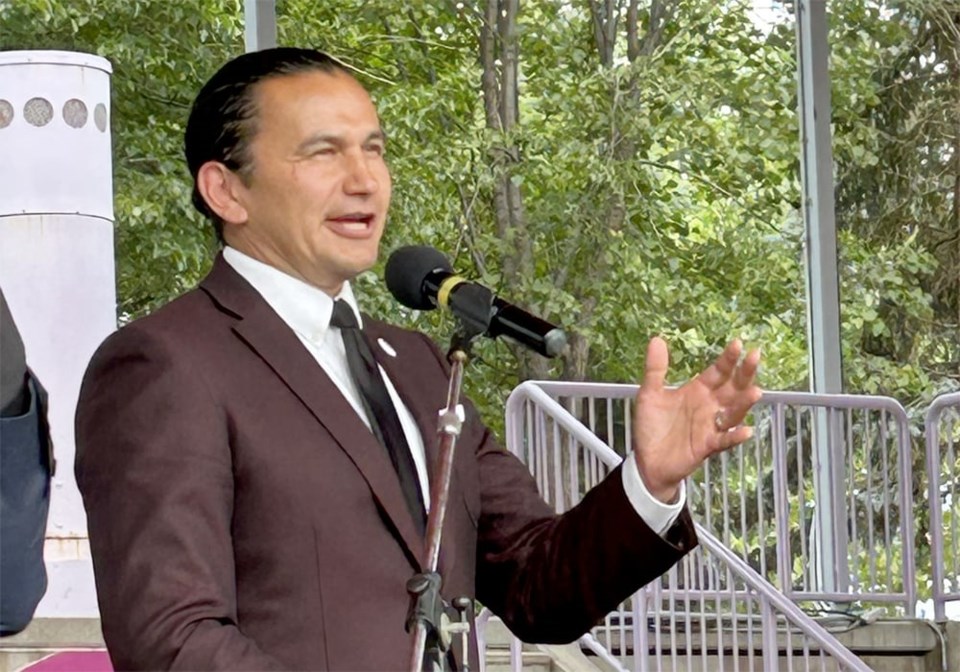WINNIPEG, Man. — Manitoba’s urban-rural divide worsened Tuesday as the provincial election results provided the soon-to-govern NDP with only a couple of farming-related seats while taking away most of the Progressive Conservatives’ Winnipeg territory.
In a campaign in which agriculture and rural issues seldom grabbed attention, general issues such as health care, government services and crime were most prominent.
Premier-designate Wab Kinew recognized the gulf between Manitoba’s urban and rural populations in his victory speech.
“To people in rural Manitoba who haven’t voted for us yet, I would ask you to keep an open mind. If our team delivers, if after a few years we have improved your health care and we have made your life a bit more affordable, I would humbly ask that in four years time you send more people from your communities to sit with our team in the Manitoba legislature,” said Kinew.
The vast majority of the NDP’s seats come from central Winnipeg, with four northern seats, Dauphin and the eastern half of Brandon comprising the rest. Dauphin will be represented by Ron Kostyshyn, a former NDP agriculture minister under former premier Greg Selinger.
The PCs held the rest of agricultural Manitoba and small central cities such as Portage la Prairie, Steinbach and
Winkler. Within Winnipeg, the PCs held most of the wealthier and commuter suburbs. Premier Heather Stefanson came close to losing her own Tuxedo seat.
The ability of the NDP to hear about and handle farming issues will be challenged by its lack of rural seats, but the presence of Kostyshyn and Winnipeg MLA Diljeet Brar, a former agricultural instructor in India and an Manitoba Agriculture extension specialist – add agricultural depth to its caucus.
Manitoba main farming groups said early Tuesday they are hoping to soon meet with Kinew and his incoming government to discuss critical issues.
“Hog farmers across the province and the 22,000 Manitobans who work in the sector will continue to build on the collaborative working relationship that’s been developed with the NDP over the past few years,” said Manitoba Pork in a news release.
“Manitoba’s hog sector contributes $2.3 billion to the provincial GDP each year and we are encouraged that the conditions of growth in the sector will continue unabated.”
The relationship between Manitoba’s hog farming and pork processing communities and the NDP were anything but collaborative under the last NDP administration of Selinger and in the final years of former premier Gary Doer.
Hog farming was accused of being a primary cause of Lake Winnipeg’s water quality problems, despite evidence to the contrary, and the government imposed a hog barn construction moratorium that only effectively lifted under the following PC government of Brian Pallister.
For years now, Manitoba Pork has been reaching out to politicians across the spectrum to ensure the industry is not misunderstood or made into an easy target for environmentalist zealotry.
During the campaign, the contentious issue of crown land leases for cattle grazers arose, with the PCs promising to make permanent a recent 50 percent reduction in lease rates and other modifications to policies it had introduced, and the NDP accusing the PC government of having destabilized hundreds of farming families. Kinew’s government will now have to manage that contentious file.
Keystone Agricultural Producers has been communicating its priorities for farmers with all political parties for months, including removing more of the education tax on farmland, improving worker availability and fixing infrastructure. It plans to raise these issues with Kinew now that he has a chance to address them from the seat of power.
Derek Johnson will be leaving his position as the PC agriculture minister but was re-elected in his Interlake-Gimli constituency.
The tone of the new government toward private enterprises such as farms is yet to be seen. Economic issues, other than the cost of living, played little role in the campaign. A short-term reduction in the provincial gas tax was a surprise NDP promise early in the campaign.
Kinew did not strike an anti-business tone nor paint himself as a carbon tax crusader, with climate change and environmental issues only briefly addressed in the campaign. His victory speech did not dwell on the controversial topic.
Contact [email protected]
Bookmark SASKTODAY.ca, Saskatchewan's home page, at this link.

